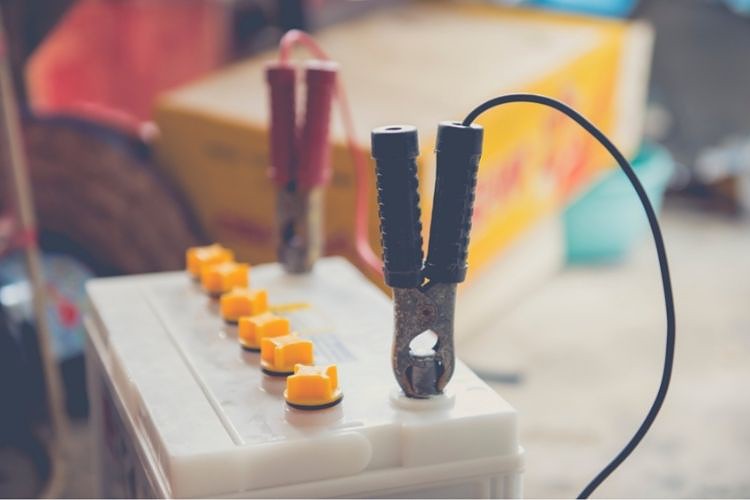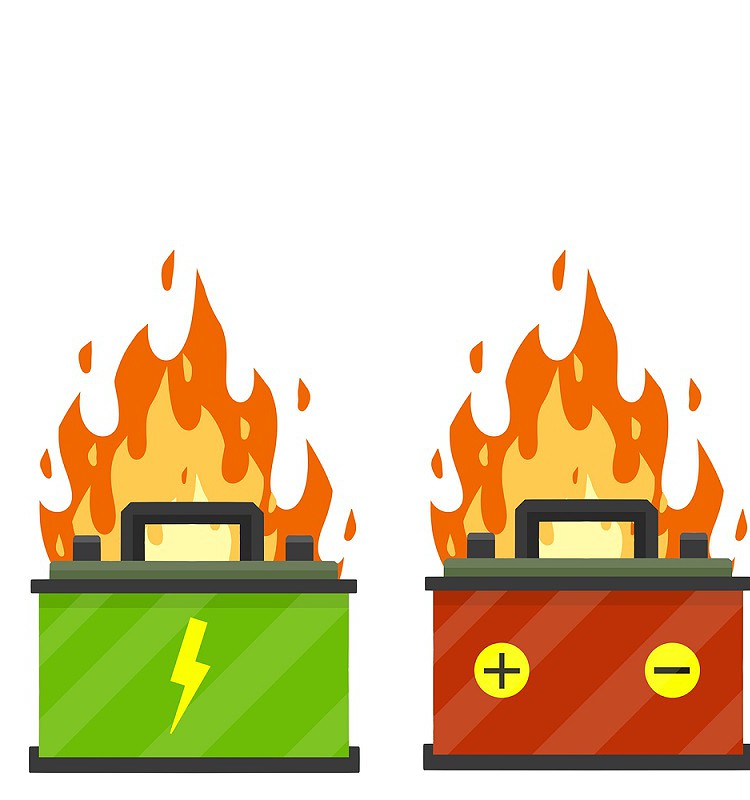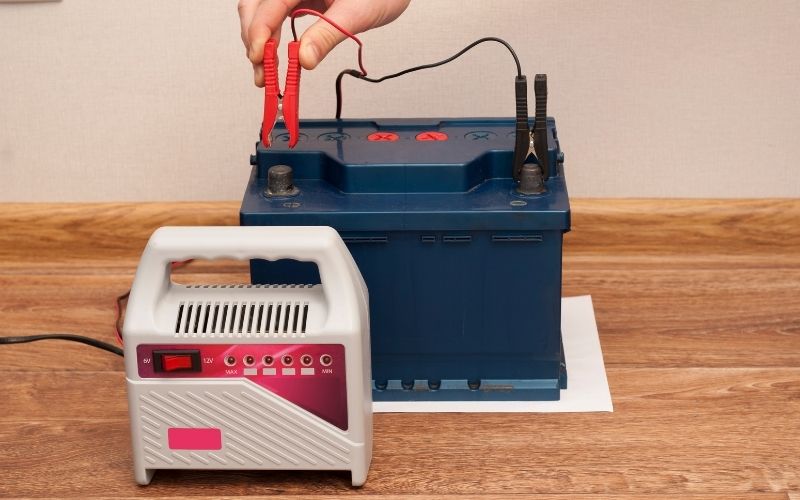If you’re new to using rechargeable batteries, you may think you can stick them on the charger and leave them. But did you know that doing this can actually cause some serious problems with your battery?
Unless you have a smart charger to monitor your battery’s charging progress, you run the risk of overcharging your battery. And overcharging a marine battery can not only leave you looking for a new battery but may even cause more serious hazards to your health and safety.
So, how do you keep from overcharging your batteries? How long is it safe to leave a battery on the charger? What is the best way to charge a marine battery?
Keep reading!
In this article, we’ll answer all of these questions and more.
Table of Contents
Can You Overcharge a Marine Battery?

Rechargeable batteries spend a lot of time on the charger, especially if you use them frequently. But, though charging is necessary, is it possible to charge your batteries too much?
It is not only possible but also quite easy to overcharge a marine battery.
Some marine batteries have built-in battery management systems that prevent over and undercharging, and some chargers turn off automatically when a battery is fully charged.
But if you don’t have this type of battery or charger, or if either system malfunctions, you run the risk of overcharging your battery.
There are a couple of ways you can overcharge a battery. These include:
- Leaving on the charger too long: If you leave your battery on the charger longer than necessary, and it doesn’t have a built-in sensor to know when to turn it off, it may continue to supply a charge long after the battery has reached its capacity.
- Charging at high voltage: You can also overcharge your battery by using the wrong kind of charger. If you use a charger meant for a 24V battery to charge your 12V battery, the charger will supply too high voltage and may cook the battery.
Both leaving on the charger too long and charging at high voltage will cause similar problems with your battery. What sort of problems, you ask?
What Happens if You Overcharge a Marine Battery?

Overcharging your marine batteries can cause several problems, including:
- Battery damage: Overcharging your battery allows an overabundance of current into the battery, which can cause the internal components to overheat and melt. Fragile parts of the battery may break due to the stress, causing irreparable damage.
- Starting problems: If the marine battery in question is a starting battery, overcharging it can cause problems with its ability to start your engine. It may only produce the needed burst of energy intermittently, or it may not be able to provide that burst at all.
- Poor performance: If overcharging doesn’t kill your battery completely, it may cause enough damage to significantly impact the battery’s performance. The battery may discharge more quickly, short out from time to time, or experience other issues.
- Shortened lifespan: When your battery is overcharged, it potentially sustains more damage. Even if the damage is not immediately obvious, it will almost certainly lead to the battery failing long before reaching its average life expectancy.
- Fire or explosion: In extreme cases, overcharging your batteries will cause such a buildup of heat and pressure that the battery will explode. Even if it doesn’t explode, it may become so hot that it will catch fire.
How Long Can You Leave a Marine Battery on a Charger?

So, we’ve established that you don’t want to overcharge your marine batteries. But this begs an obvious question: how long can you leave a battery on the charger without risking an overcharge?
The answer varies, but it largely depends on the type of charger you have.
Onboard chargers are left permanently hooked up to your batteries. These types of chargers are usually known as “smart chargers;” they charge automatically and have a built-in sensor telling the charger when to stop supplying a flow of energy.
Smart chargers will sense the charge level at all times and stop charging when the battery’s full. There are different kinds of smart chargers, and not all of them are meant for onboard use, so make sure you know what you need and what you’re getting when you buy a new one.
Other types of chargers will not sense a full charge, so you’ll have to keep an eye on the progress of your charging batteries to know when they’re done.
In general, it typically takes at least 4 to 6 hours to recharge a marine deep cycle battery, but multiple factors can influence this number, including:
- Depth of discharge: A battery that has been 80 percent discharged will take longer to charge than one 50 percent discharged. More of the battery’s total capacity has been used up, so it will take longer to replace it.
- Age of battery: Old batteries will most likely have longer recharge times than new batteries. They may also lose their charge more quickly, making it necessary for you to charge them more often.
- Condition of battery: If your battery has been poorly cared for and is in bad shape, it may take longer to charge than a battery that has been well maintained and properly cared for.
- Temperature: Even the air temperature can affect how long it takes to charge your batteries–they will charge more quickly in warm weather than in cold weather. Some chargers take this into account, while others do not and need to be monitored.
You can estimate how long it will take to charge your battery using the following formula, courtesy of Powering Autos:
Charge time = battery’s amp hour rating / charger output (amps).
So, if you have a 100 amp-hour battery and a 20-amp charger, it should take around 5 hours to fully charge your battery. (100/20=5).
What is the Best Way to Charge a Marine Battery?

There is no “one right way” to recharge your marine batteries. The type of charger you choose will depend on the type of battery you have and your setup.
For example, if you leave your batteries on your boat at all times, you will want an onboard charger . If you have a small boat and take your battery off the boat between uses, you will want a charger with alligator clips that can easily be removed.
Regardless of your setup, it is generally best to use a smart charger that can sense the charge current and adjust it to your particular battery. Smart chargers will turn themselves off automatically when the battery is charged, preventing overcharging and other electrical issues.
It’s also a good idea to use a charger that’s recommended for your specific battery. Some batteries are only meant to be used with certain chargers. Before purchasing a battery or a charger, find out what type of charger is recommended for any battery you’re considering.
Conclusion
Overcharging a marine battery can cause many serious problems, including poor performance, irreparable damage, and even the risk of fire and explosion. To prevent these issues, it’s a good idea to use a smart charger or to monitor your batteries closely during the charging process.

I created this site to help people – to help you – with your boat problems. Instead of helping one person at a time, I want this website to be the “one-stop-shop” for everyone’s boating concerns. Read more.


Derek W Zimmer
Saturday 23rd of April 2022
Thank you. I found your topics and instructions quite valuable.